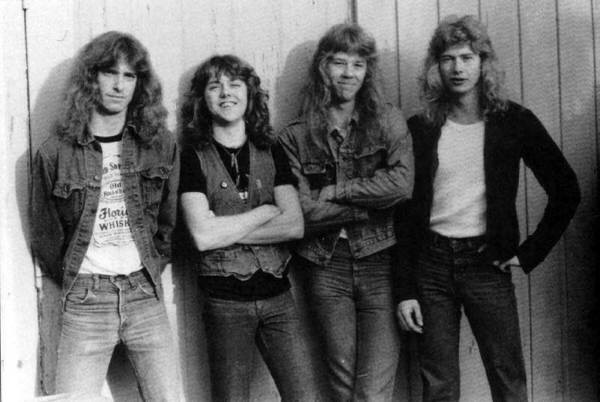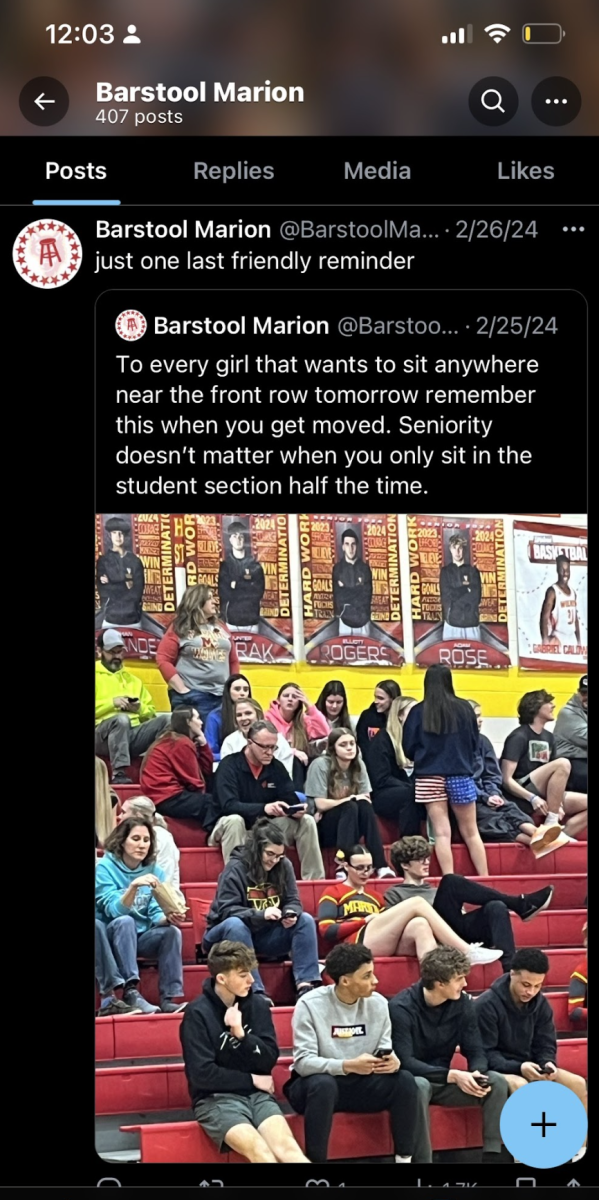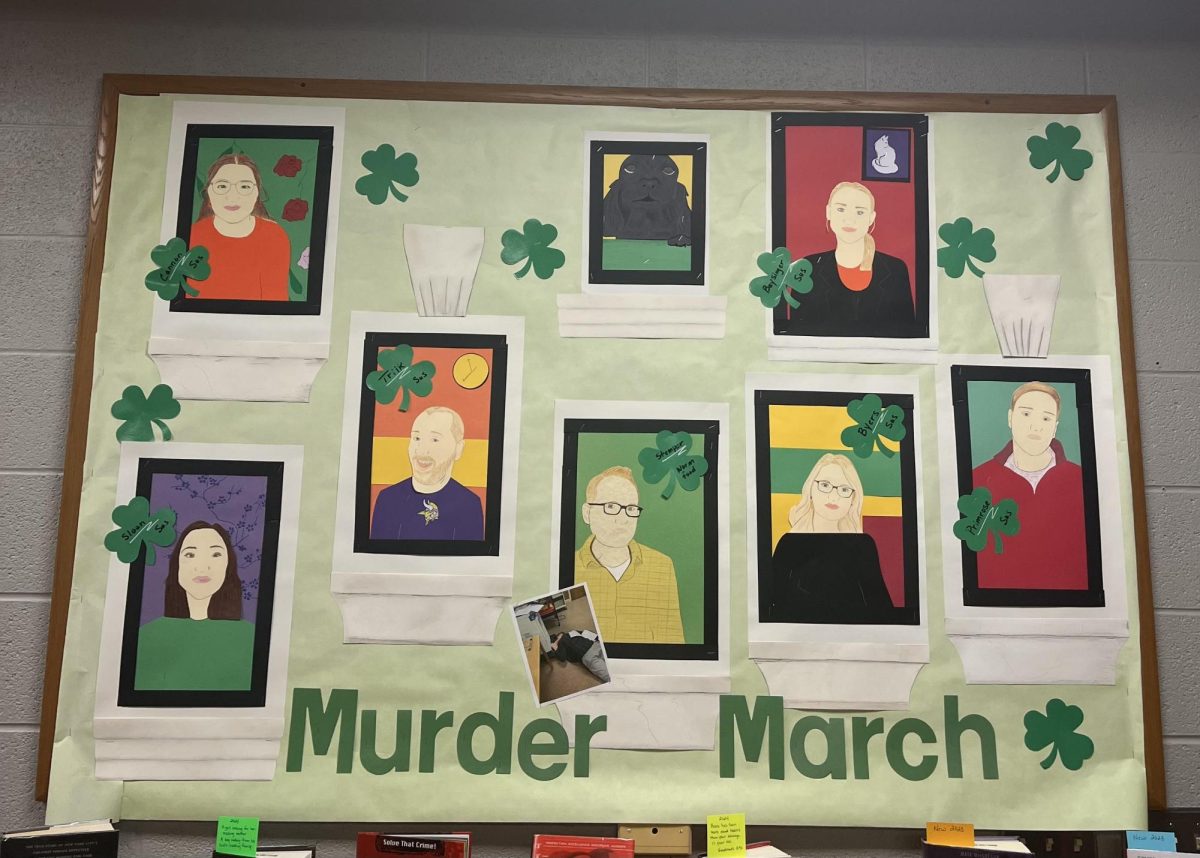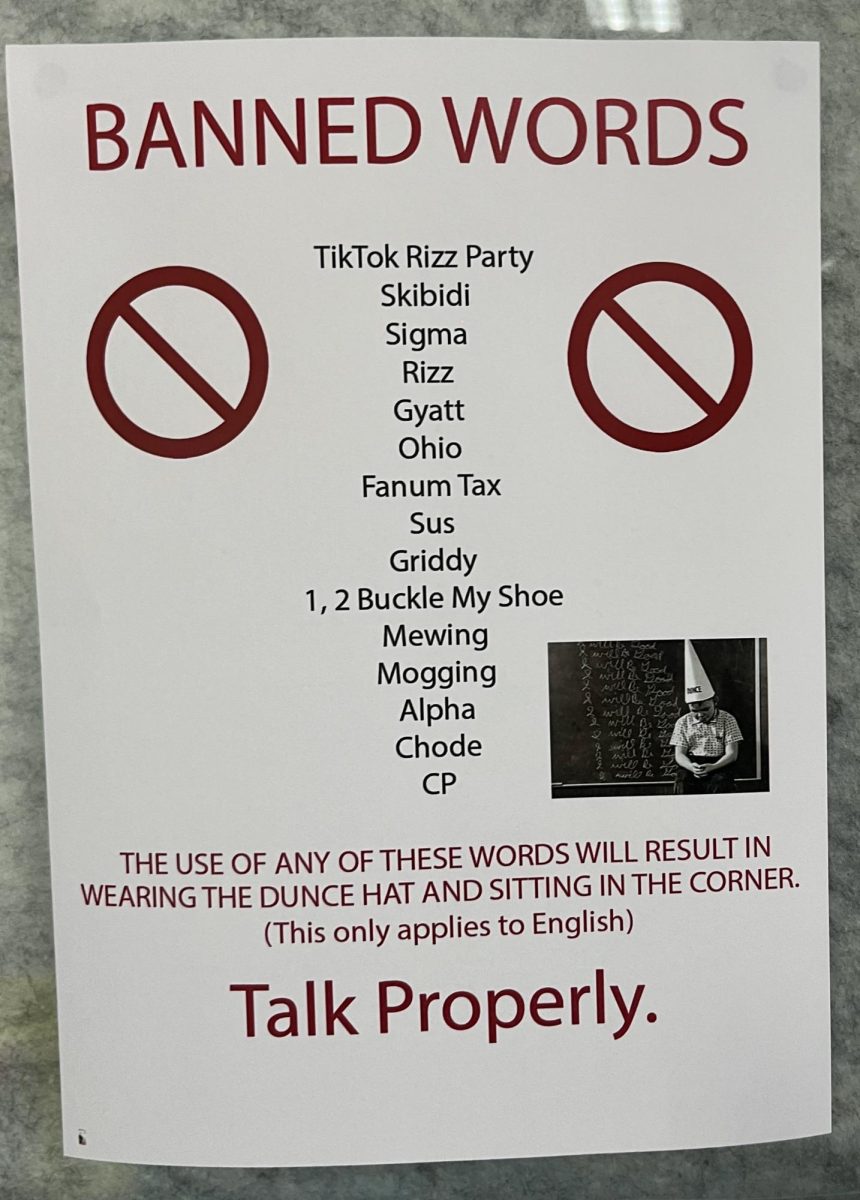Recently, popular artists and bands circulating Gen Z’s Spotify and Apple Music accounts seem to have started their music journeys after the turn of the century. For example, artists like Taylor Swift, Ice Spice, Drake, Noah Kahan, and Luke Combs all started in the industry during or after the 2000s. Stereotypically, each generation has its own set of music that they like because they find it most nostalgic. For example, Gen X may prefer music from the 80s or 90s, and millennials may like music from the early 2000s. However, this isn’t always true. Older generations may love The Weeknd or Doja Cat, and younger generations may love David Bowie and Led Zeppelin. With streaming services and social media becoming popularized, it’s much easier for younger generations to hear music that was popular with older generations.
Parker Garretson, freshman, regularly listens to and prefers rock music from the 70s and 80s, such as Metallica, Ozzy Osbourne, AC/DC, and Guns ‘N Roses. He prefers the “distortion and cool guitar tones” of older rock music and feels as though newer music doesn’t click with him in the same way. Classic rock from before the 21st century was known for having a unique blend of blues, folk, and country music, whereas modern rock music frequently integrates influences from electronic, hip-hop, and pop music. In addition to preferring classic rock for its overall sound, Garretson finds it nostalgic. “It brings back memories,” he said. “When I was younger, I’d go and see my family. They’d play in a band.” He finds older rock music to be more meaningful and purposeful to him.
Zeke Calhoun, senior, agrees that he finds this type of music, or as he likes to call it, “dad rock,” to be more authentic. “I really like Journey, Chicago, Boston… There’s a lot of solo artists now… so there isn’t this feeling of ‘coming together to create,’” he said. Calhoun also believes that as technology for recording in the music industry has advanced, it has become easier for artists to achieve their vision for a song. “I’ve learned how much more difficult it was to record and do multiple takes for it to be put out for sale… it gives it a feel of authenticity. I really feel like, because [making music] has become easier, that older artists had to work to make something really good to make money,” he said. He says that classic rock is the most nostalgic type of music to him because his father also played in multiple different bands. “I’m a musician myself… I grew up around [rock] music, so I would just hear it constantly. I still think it’s cool.” Calhoun says his main influence was his father, however many younger generations also hear older music in the media.

Another influence for Garretson, as well as for many students who like classic rock, was Stranger Things. The character Eddie Munson from season four was a rock-and-roll enthusiast and played Metallica’s Master of Puppets on electric guitar during the show. Garretson said, “One thing that influenced [my taste] was Stranger Things with Eddie. After that, I [was] like, ‘oh, this sounds awesome.’” Stranger Things, being set in the 1980s, has continued to have a great impact on viral songs that were originally popular in the decade, such as the aforementioned Master of Puppets, Should I Stay Or Should I Go, and Running Up That Hill. These songs blew up across social media, and according to ABC News, Master of Puppets gained a 400% increase in streams after the release of the season. Popular shows such as Stranger Things, as well as social media, can sway younger audiences towards older music.
The resurgence of older music amongst younger generations, particularly Gen Z, defies traditional generational boundaries. While Calhoun and Garretson listen to the music because of how the bass reverberates and the drums boom, they genuinely appreciate the genre due to the authenticity that is emulated through the emotional and nostalgic depth of the classic rock band sound. The accessibility of streaming services and the influence of media have bridged the gap between past and present music tastes. As technology evolves, students are beginning to appreciate the effort put into older music production and understand the appeal of the sound. In embracing the music of previous eras, Gen Z is proving that sometimes “trends” are simply timeless.















